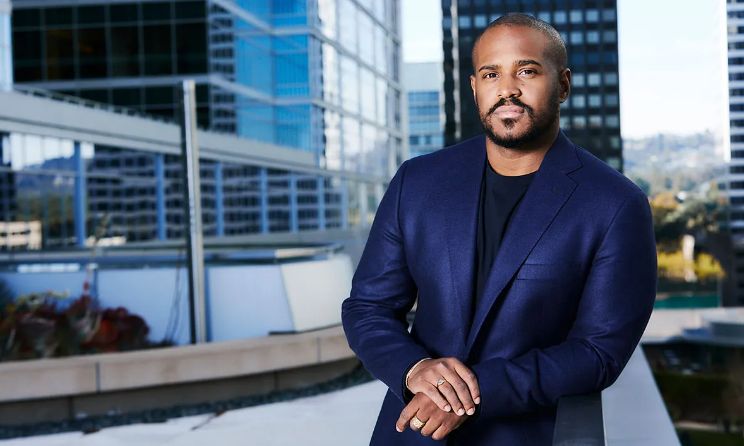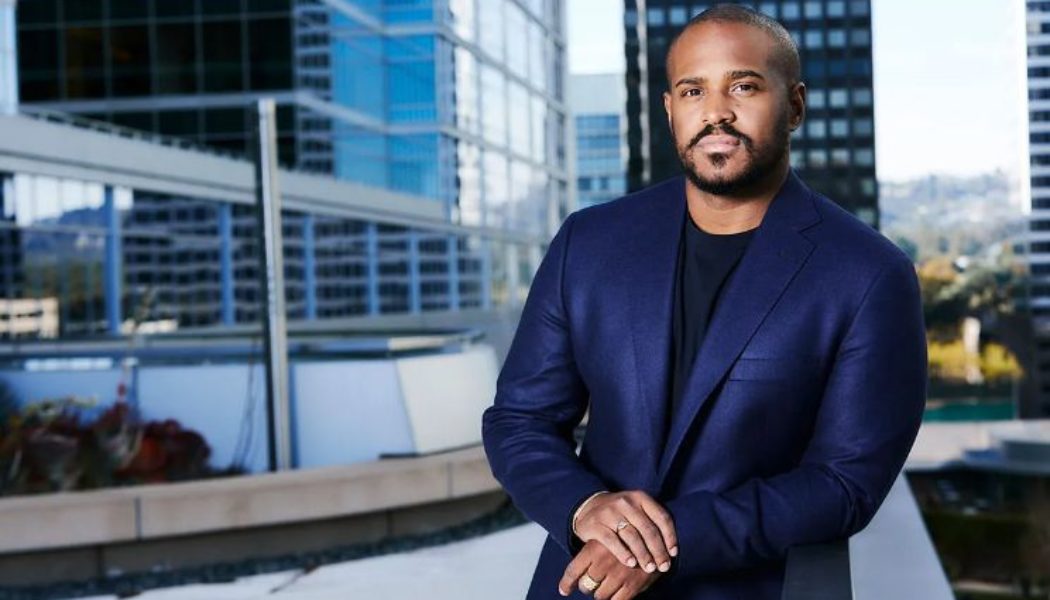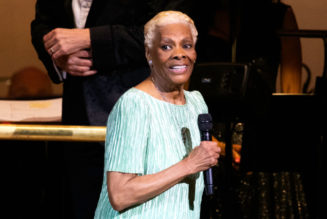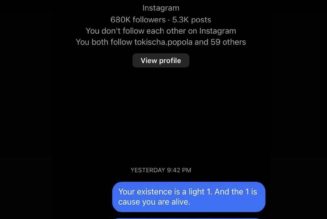
At the digital streaming platform (DSP), Hadley works on bolstering industry connections and listenership, and making Spotify the top choice for artists. These days, given pop’s climate, this task includes a strong emphasis on Afrobeats strategies.
Last Friday in Lagos, Nigeria, at the sidelines of Spotify’s festivities celebrating Afrobeats’ major streaming milestones over the years, a smiling Hadley, after greeting me with a handshake and a compliment on my shirt, tosses me a confident response about the future of global African music artists. Uniting notable industry names and featuring performances by Sarz, FAVE, Shallipopi and Ruger, the two-day experiential event dubbed #SpotifyPodcastsLagos and #SpotifyAfrobeats, served as a capsule into the rich culture of the genre.
Hadley’s background as an agent began in a Chicago-based firm where he worked with various artists, especially those from the UK and within the urban R&B scene. He represented artists like Mahalia and Jorja Smith, who were exceptional vocalists but not quite mainstream. During previous trips to Nigeria, Ghana and South Africa, he became deeply involved in the African music scene, particularly in Nigeria, and observed that African artists lacked the same representation on the agency side as those from other parts of the world. This led to a career pivot to reduce barriers for African artists and provide them with representation, ultimately aiming to include the continent in world tours.
In the not-too-distant past, international acclaim for Afrobeats stars averagely came around age 25, but many of today’s leading names are emerging much earlier. Rema, the genre’s most exported artist, whose ‘Calm Down’ single remix featuring US act Selena Gomez is the first African artist-led track to cross a billion streams on Spotify, is just 23. Fellow Mavin act and blooming pop diva Ayra Starr is 21. FAVE, known for smash hits like ‘Baby Riddim’ and a scene-stealing appearance on Davido’s ‘Kante’, is the same age, as is Gyakie, among Ghana’s leading new voices today. Black Sherif, Ghana’s best-performing act across multiple major DSPs who also recently clinched the Best International Flow trophy at the 2023 BET Hip Hop Awards, is 21. South Africa’s Tyla, behind the viral hit ‘Water’, is 21 too.
Hadley, now on his third trip to Nigeria in the time of Afrobeats, is intrigued by the notion that there haven’t been new superstars, and that the current ones (Wizkid, Davido, Burna Boy et al.) have been around for a while. “But there are, to your point, the Remas, the Ayras, the Tylas,” he agrees. “There are many who are on the cusp. It’s in everyone’s best interest that those artists have a solid foundation, and that they are continuously working on building and growing their audience.”
The way that Spotify plays a part in this, Hadley says, starts with the DSP’s editorial team, whom he notes excels at identifying key artists and songs through in-house programmes like Radar and Fresh Finds, before they achieve widespread recognition. Rather than immediately placing them on major playlists or in the spotlight, they start with smaller feeder lists to assess fan reactions. If these songs prove successful, they are gradually elevated, avoiding hasty leaps. This method helps artists establish a strong foundation, a crucial step toward genuine superstardom.
“I think that there’s a difference between having big songs and being a global superstar, and we want to always be building an artist and their music and their careers holistically, as opposed to just big songs,” he notes.
Hadley also highlights the importance of Spotify for Artists, a tool for musicians to access best practices, pitch their music, update content and effectively market themselves on the platform. He adds that Spotify aims to continuously enhance this resource, ensuring that it provides valuable information and support to both established superstars and emerging artists in optimising their self-promotion efforts.
Over the years, Spotify insight has become cornerstone material for artists looking to truly appraise their work and plan better. Wrapped, a company-wide year-end report, for instance, has routinely predicted the next big stars at an incredible success rate. Artists like Tems, Ayra Starr and Tyla were identified through initiatives like Radar before their biggest songs reached their peak.
I’m curious about the in-house machinery, which has made Spotify insight a vital resource for artists and their teams.
“When it started initially, we didn’t know that it would become all that it has,” Hadley says about Wrapped. “Now, every single thing about that is thought through. There will be some happy accidents, but everything that’s happened so far has been very deliberate. Every year, we push it to level up and go deeper, so all of those insights are not only by data, but it’s also the cultural expertise from our editors and our editorial team from around the world coming together with those predictions and information.”
My next question pertains to how Spotify plans to uphold Afrobeats’ prominence in the global music scene, to which Hadley offers me a couple of statistics: two years ago, Afrobeats on the platform saw year-on-year growth of about 40%, and in the past year, it has increased to approximately 46%. “That’s pretty phenomenal growth with, admittedly, not a lot of marketing. So, the plan for next year and onward is to intentionally and deliberately invest more into our marketing efforts, both in Nigeria and on the continent, and globally. What you’ll see is a lot more collaboration between our sub-Saharan Africa, UK, French and US teams to help continue and amplify the growth that’s already been happening naturally.”
Nigeria steers the Afrobeats conversation, but across other parts of the continent, there’s a constant bubbling new sound. I ask about Spotify’s intention to make sure that genres like amapiano and bongo flava among others receive as much notice as Afrobeats has done.
“Afrobeats is doing an incredible job of opening the door for more music from the continent, and obviously, a lot of the attention starts there, but once the casual listener becomes a fan of the genre, they start to explore the other things on the continent, so we are very intentional about how we amplify those other genres,” he says, citing Spotify’s recent collaboration with amapiano artist Uncle Waffles, giving her a platform to perform at major events like Coachella and Cannes Adweek. Deliberate effort like this, observes Hadley, broadens the scope for African genres and integrates them into various musical spaces beyond the continent, including electronic, pop and dance.”
On Spotify’s interests within the podcast space, which has become integral to telling the story of the culture of Afrobeats, Hadley explains that the platform’s podcast team is actively working on improving efficiency and output, adding that they are aligning their efforts with the 2024 and 2025 music strategy to ensure a cohesive approach that amplifies the music while integrating podcasts seamlessly into the overall strategy. This integration, he admits, is still a work in progress but a top priority.
Hadley also touches on Spotify’s role as a company that empowers artists through technology. To him, the music industry’s transformation into a tech-driven field is a way to break global barriers and help artists grow at an unprecedented rate. Spotify’s advancements in technology, such as countdown pages, as well as platform features like Clips, and the Fans First programme, create new opportunities for artists to expand their audiences and generate additional revenue, he believes. In terms of balancing art and technology, Hadley says Spotify’s approach is simple: using technology to empower creators worldwide. The platform serves multiple roles, with various teams working on different aspects, including advertising, marketing, product development, labels, and more, all the while honouring the core mission of empowering creators through innovative methods.
Because of his track record (he is widely credited with having led CAA’s diversity and inclusion efforts), I ask Hadley about gender disparities within African pop, and Spotify’s attempt to create a more inclusive music space. Hadley praises already existing initiatives like EQUAL, and cites successful EQUAL festivals in South America and Europe, drawing thousands of attendees in support of women in the music industry. He also points out that Radar has been conscious about promoting female artists. “Between EQUAL, Radar, and then just the overall awareness of the need to level the playing field, those are the examples in the way that Spotify is helping to offset that problem,” he explains.
Ultimately, Hadley believes that the route to the next billion streams begins with the acknowledgement of the work that not only the pioneers, but the upcoming artists in the Afrobeats genre have put in. “Spotify is an incredible platform to help amplify it, but we don’t exist without the artists and the history of the music.
“The way that the music and the culture is exported, really, is where we’re fueling each other. It starts a bubble here on the continent, and then it travels to the UK, France, North America and Canada, and obviously, globally. Once we noticed that, we just wanted to make sure that we could continue to help grow it by servicing the current superstars, whether it’s Wizkid, Burna or Rema, and the developing ones are emerging, the next generations, and that’s where those next billions are going to come from.”









